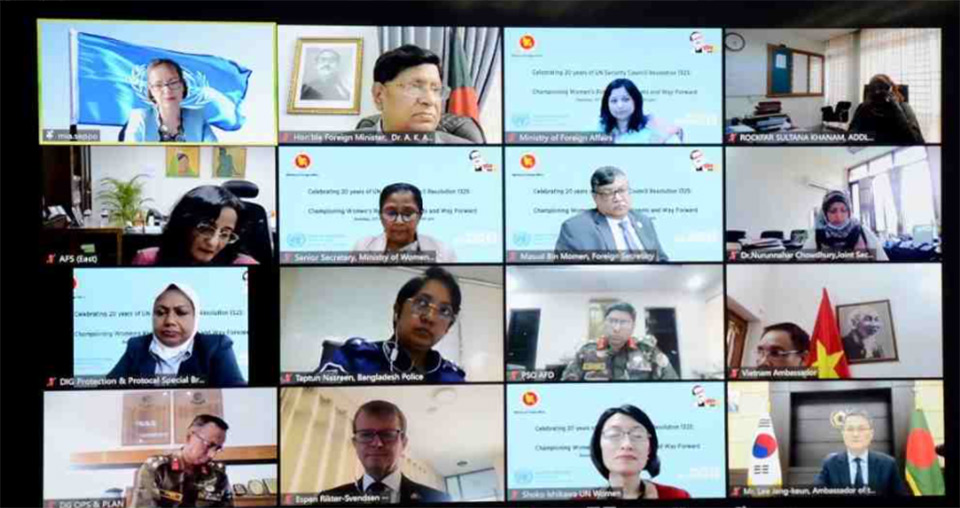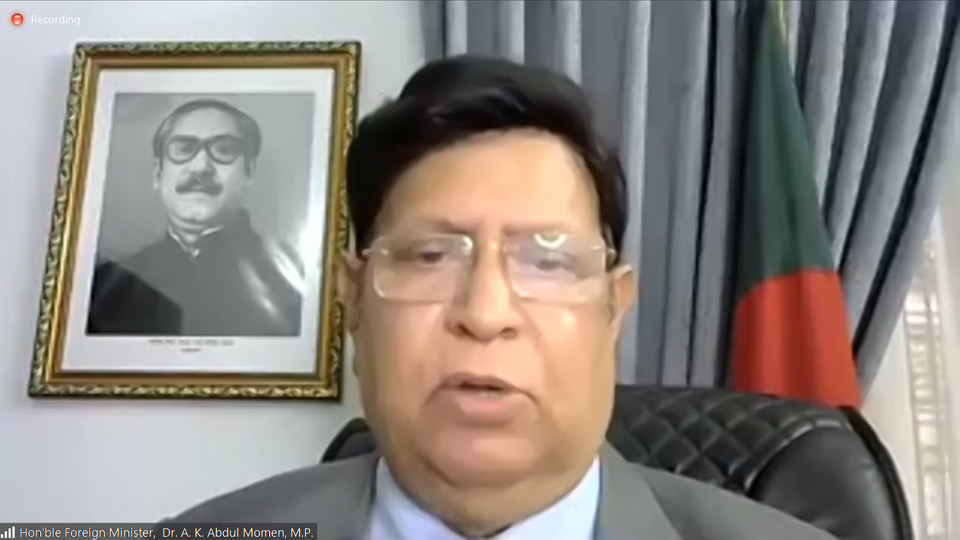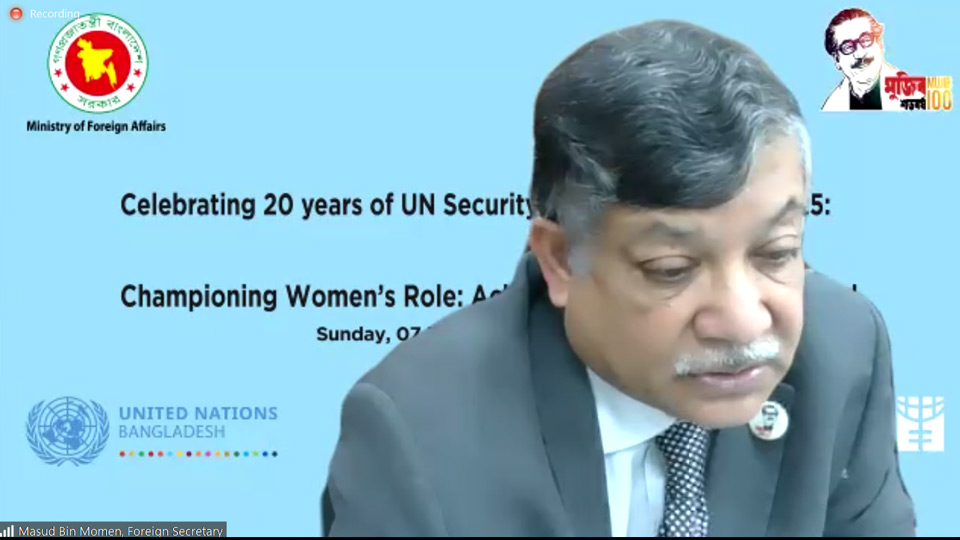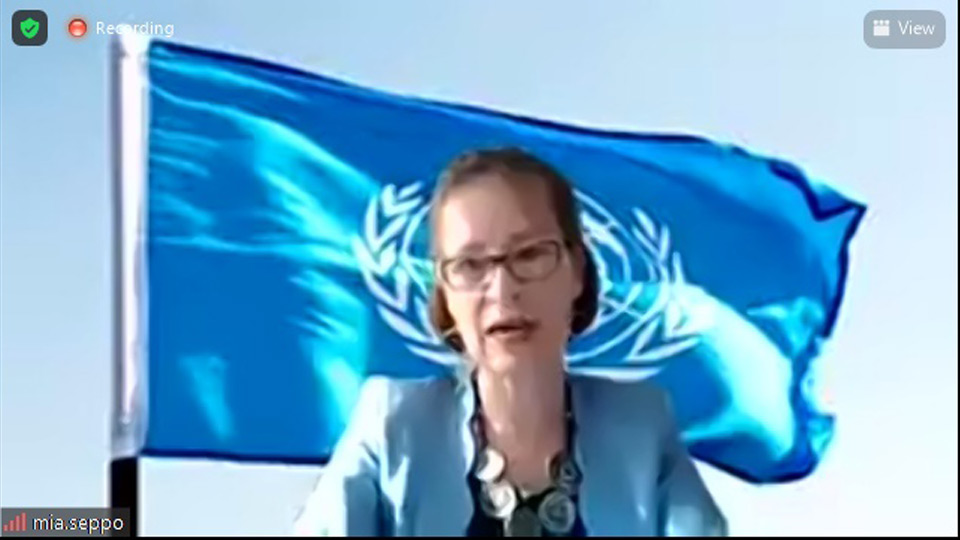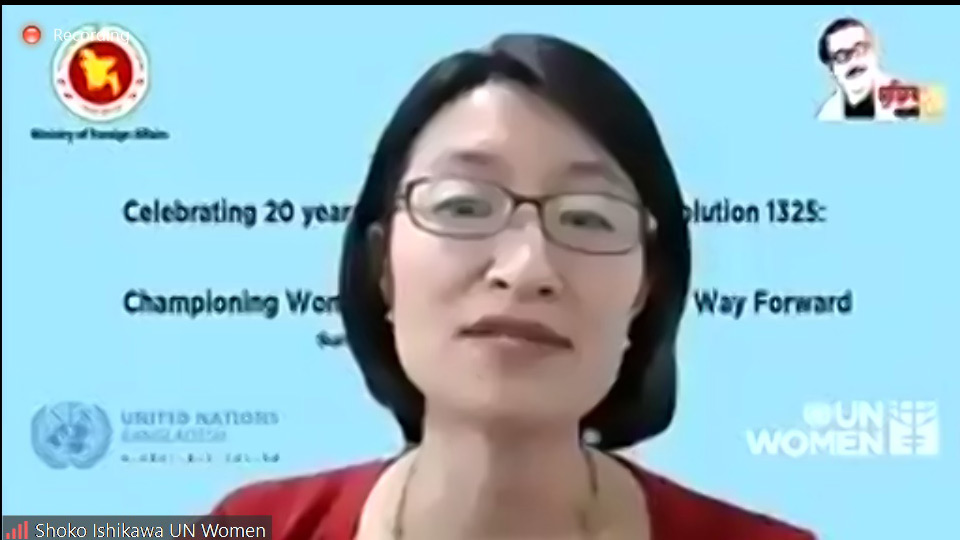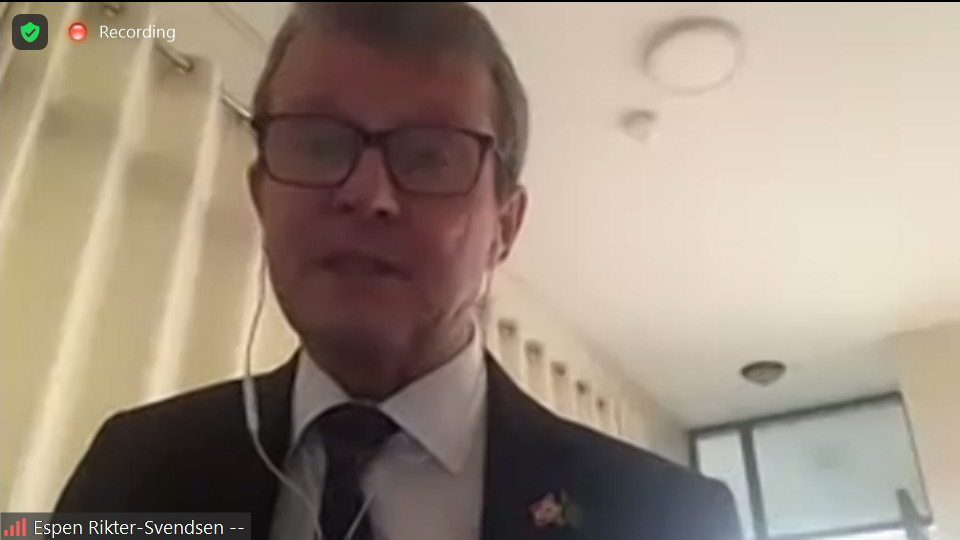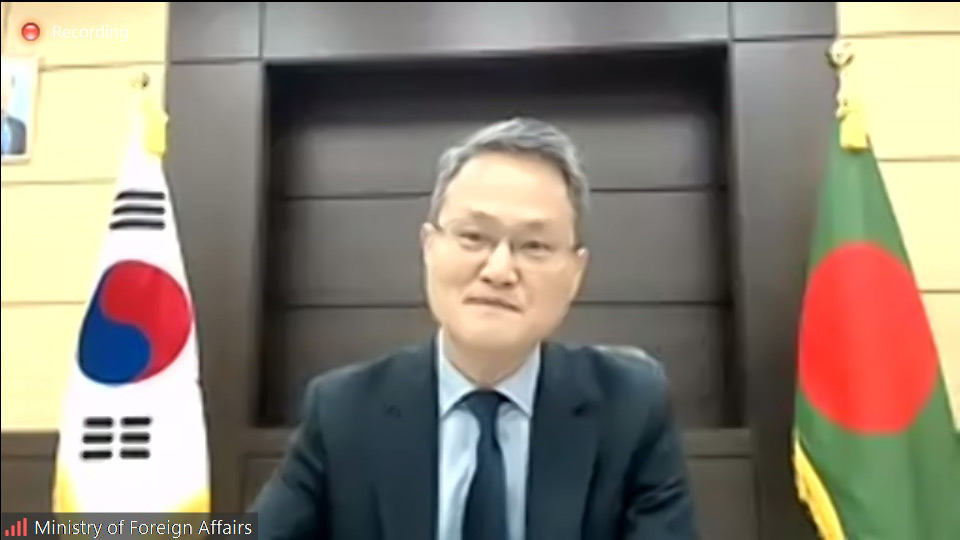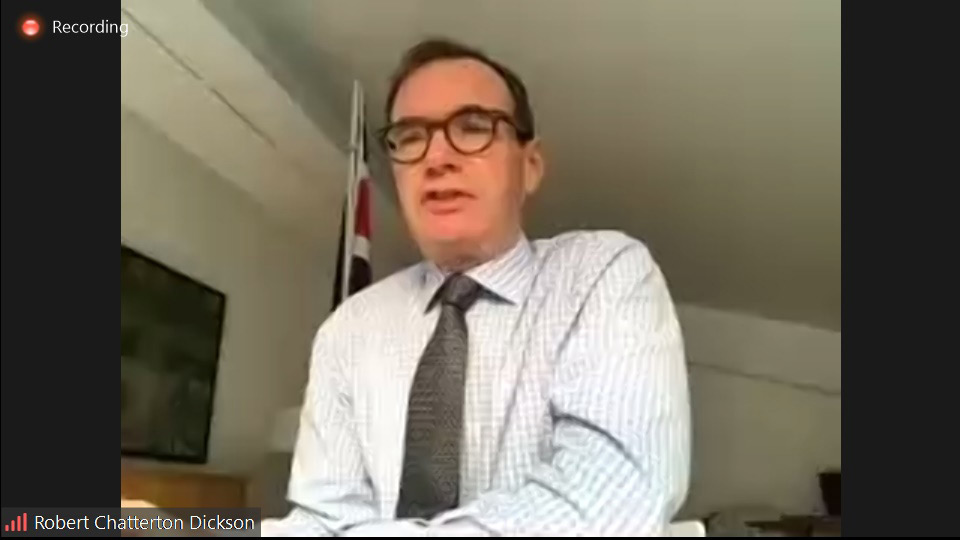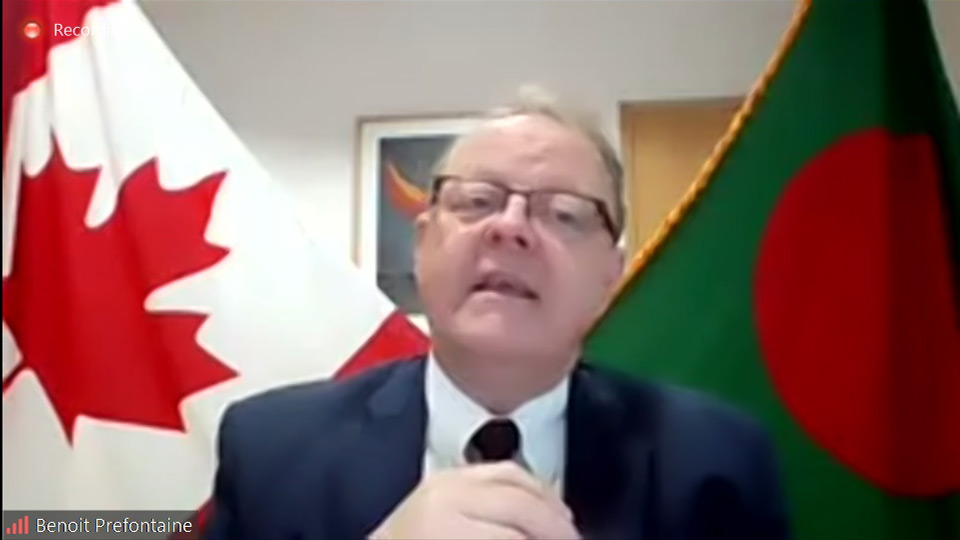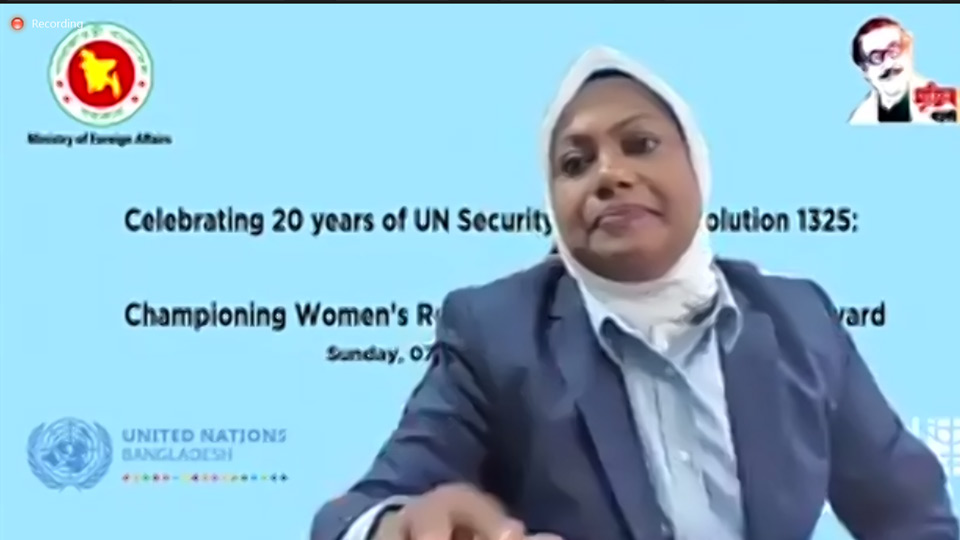Women’s meaningful participation essential to peace: Bangladesh commemorates 20 years of UN Security Council Resolution 1325 on Women Peace and Security
Date:
Author: Tania Sharmin
Dhaka, Bangladesh — Women’s meaningful participation is essential to building peaceful societies, voiced speakers at an event titled “Championing Women’s Role: Achievements and Way Forward” jointly organized by Ministry of Foreign Affairs and UN Women in Bangladesh to commemorate 20 years of UN Security Council Resolution 1325 (2000) on Women Peace and Security (WPS). The event brought together senior Government officials, diplomatic envoys from Norway, Republic of Korea, UK and Canada, etc. and civil society representatives.
“Peace and security for all can only be achieved and sustained if there is peace and security for women and girls. This includes equal opportunities, protection, access to resources and services and participation in decision-making.”
— Mia Seppo, UN Resident Coordinator, Bangladesh
In her remarks, Mia Seppo, UN Resident Coordinator in Bangladesh applauded Bangladesh for its international role in advancing the Women Peace and Security agenda at home and abroad. Bangladesh, as the largest contributor of personnel to peacekeeping missions, including female peacekeepers and police, is ensuring the stability and safety, in particular of women and girls, in the communities they serve. “Women’s meaningful participation [in securing and maintaining peace] is about shifting power…we need to do more to remove the barriers to their participation”, she said, while highlighting the role of all stakeholders including Member States, UN entities, women’s organizations and decisions-makers in making the WPS agenda a priority in the coming decades.
Shoko Ishikawa, Country Representative of UN Women Bangladesh, moderated a session in which speakers shared the opportunities and challenges faced while advancing the WPS agenda in Bangladesh. Manzoor Hasan, OBE, Executive Director of Centre for Peace and Justice of Brac University, highlighted the role of young women in promoting a peaceful and inclusive society through the learnings from the Women Peace Café piloted by them in partnership with UN Women since 2018.
Amena Begam, Deputy Inspector General of Bangladesh Police and President, Bangladesh Police Women Network, presented the work of female police promoting peace through community engagement all the while working alongside their male counterparts in equal footing. She stressed that peace and security and women’s empowerment cannot be achieved without educating and involving men and boys.
Representatives from Bangladesh Armed Forces Division outlined Bangladesh’s tremendous contribution to peacekeeping, including providing all female contingent in UN Peacekeeping missions, while acknowledging that barriers to increased female participation need to be addressed to enable supportive environment for uniformed female troops and officers.
Foreign Secretary Ambassador Masud Bin Momen talked of Bangladesh’s success in women’s increased participation in the economy, government and political sphere, and its role as a strong advocate of WPS issues.
“Peace is inextricably linked with gender equality and women’s equality makes our society peaceful and secure”
— Dr. A.K. Abdul Momen, Foreign Minister, Government of Bangladesh
Addressing the event as chief guest, Foreign Minister Dr. A.K. Abdul Momen reiterated Bangladesh’s pivotal role in the adoption of Resolution 1325. “Peace is inextricably linked with gender equality and women’s equality makes our society peaceful and secure”, he said, while outlining Bangladesh’s commitment to the WPS agenda through the adoption of the National Action Plan on Women Peace and Security (NAP WPS) in 2019. “Our women are agents of peace and the National Action Plan on WPS is that vision of peacekeeping and peace building”. He also focused on the issue of financing that remains a challenge for implementing this agenda. He emphasized the need to redouble efforts to ensure women’s full, equal and meaningful participation in the peace process.
The event was attended by over 90 participants including government officials, foreign dignitaries, development partners, civil society representatives, academics and media.
[1] Women Peace Café is a university-based platform for civic engagement and experiential learning of students, especially female students, to support their communities in promoting message of peace through social entrepreneurial engagements. For more information on WPC, please see “In Bangladesh, female students develop business ideas to improve society” and “Female university students in Bangladesh build resilient communities through social entrepreneurships”.
